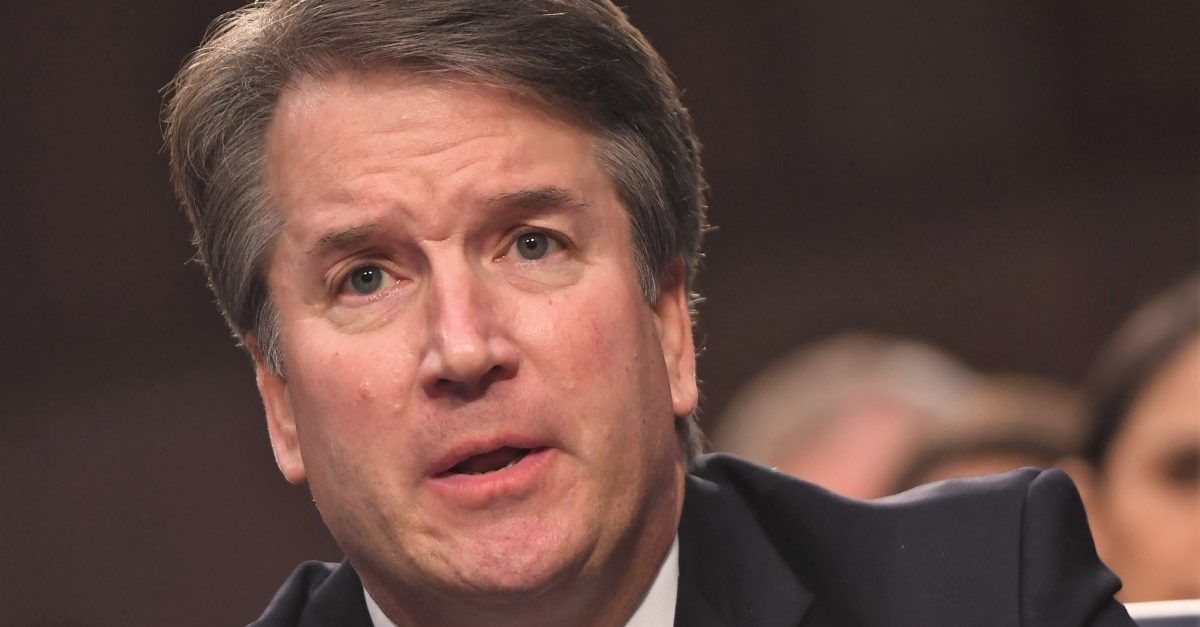
The Senate Judiciary Committee has released the written answers that Supreme Court nominee Brett Kavanaugh provided in response to Senators’ questions. Among them are a quite a few questions about abortion in general and Roe v. Wade in particular. The conservative Kavanaugh’s responses ranged from sidesteps to refusal to answer.
Senator Dianne Feinstein (D-California), who got into it with Kavanaugh over abortion during the nominee’s confirmation hearing, got right to it in her written questions, asking:
a. Please explain your understanding of what it means for a woman to be
able to control her reproductive life.b. What is your understanding of how women are being affected in states
in which access to reproductive care has been curtailed?
Kavanaugh didn’t even attempt to answer the questions, instead addressing the relevant legal issue before him, which is how past abortion-related decisions should be treated.
“As I discussed during the hearing, I understand the importance that people attach to Roe v. Wade, the depth of feelings about the decision, and the real-world importance
of the issue,” Kavanaugh wrote. “Both Roe and Casey are precedents of the Supreme Court entitled to respect under the law of precedent.” He went on to say how Roe has been reaffirmed many times, and that Planned Parenthood v. Casey is precedent on precedent, which he also said at his hearing.
Despite claiming that he understands the importance and feelings that people attach to Roe, which is what Feinstein’s questions were about, he did not explain this any further. Still, it was more of an answer than Feinstein and her colleagues got for other questions. The California Senator next asked about Kavanaugh’s opinion on whether, if Roe were to be overturned, abortion bans would have to have exceptions for a mother’s health, or cases of rape or incest. Kavanaugh balked.
“As a sitting judge and nominee, principles of judicial independence prevent me from speculating about hypothetical contingent events, particularly involving a controlling precedent of the Supreme Court,” he said. This was a common response for Kavanaugh, and for nominees in general. The left-leaning Elena Kagan gave a similar answer regarding Roe v. Wade in her written responses, which Kavanaugh noted.
Senator Dick Durbin (D-Illinois) asked several questions about Kavanaugh’s time as White House Staff Secretary in the George W. Bush administration. Among them was one about the Partial Birth Abortion Ban Act of 2003. Durbin noted that Kavanaugh told him that the Act would have come across his desk during that time period. “Did you write, edit, review or approve any documents, emails, or speeches regarding this legislation?” he asked.
Kavanaugh’s response:
As I explained at the hearing, as Staff Secretary, any issue that reached the President’s desk from July 2003 to May 2006, with the exception of a few covert matters, would have crossed my desk. That applies to the President’s speeches, public decisions, and policy proposals, among other issues. I do not recall all of the matters that crossed my desk during this time, and in terms of what work I did, my role was not to replace the policy or legal advisors, but rather to make sure that the President had the benefit of the views of his policy and legal advisers.
His answers to subsequent questions on this topic simply said, “Please see my response” for that question.
Kavanaugh’s stance on abortion has been highly scrutinized, particularly because President Donald Trump said he would nominate justices who would overturn Roe v. Wade. Kavanaugh, however, said he never discussed his position on the matter with Trump, relevant members of the Executive branch, or members of groups linked to Trump’s nomination process.
“Have you discussed your views on abortion, Roe v. Wade, the Affordable Care Act, health care, or religious freedom with the President, anyone who works on judicial
nominations in the Executive Branch, or anyone from the Federalist Society or Heritage Foundation since September 2016?” Senator Mazie Hirono (D-Hawaii) asked.
Where Kavanaugh may have danced around other questions, he was direct in his response to this one.
” I have offered no hints or forecasts on particular cases and made no commitments to any individuals or organizations as to how I might rule on particular cases, if confirmed,” he said.
Read the complete document with questions and answers here.
[Image via SAUL LOEB/AFP/Getty Images]